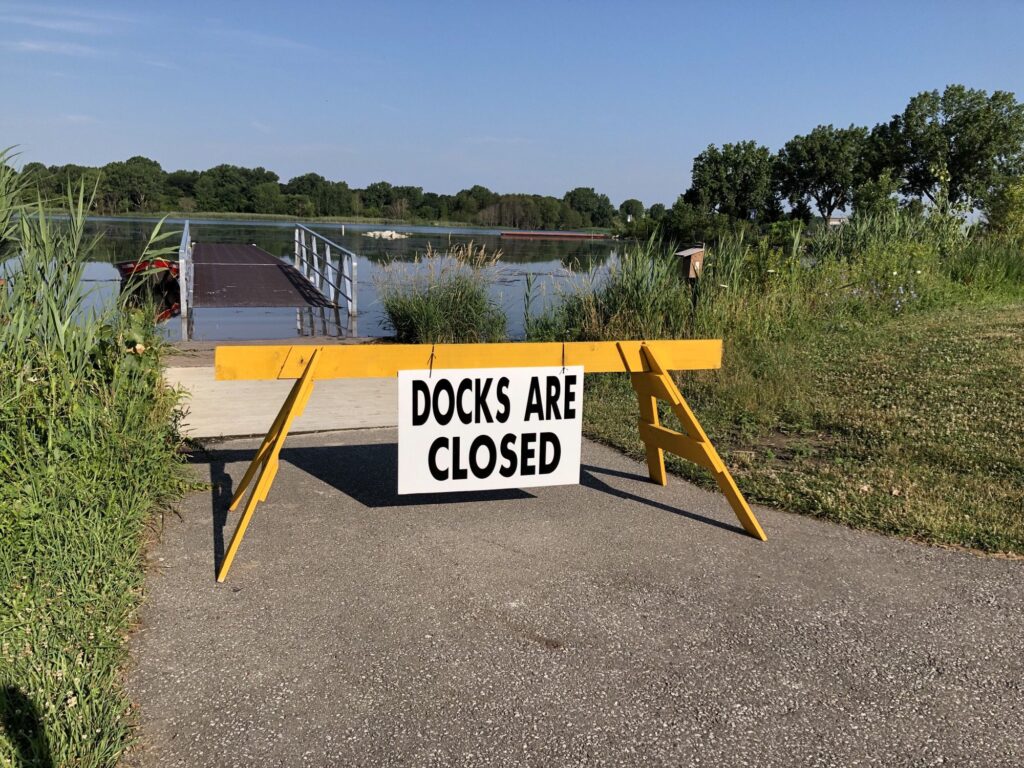Great Lakes water levels have reached record highs in 2019, eroding shorelines, threatening and damaging public/private infrastructure (e.g., marinas, homes and cottages), and overwhelming water systems in communities. On July 7, 2019, strong winds from the northwest pushed Detroit River water above the storm water system in Lasalle, Ontario, resulting in significant flooding, closure of streets, and limiting access to homes, public spaces (closed swimming pools and sport fields) and many businesses. The flood waters remained for two days, despite sunny weather and lower wind speeds. This type of flooding, driven by strong winds, was relatively unprecedented for the community of 30,000, but has been a growing concern for communities along Lake St. Clair and the Detroit River. The flood occurred with no warning, as the community and region did not have the technology to monitor changes in wind speed, wave height or water levels along the Detroit River.
The flooding also raises issues for the health of the Detroit River ecosystems, and downstream systems including Lake Erie. The receding water can carry urban waste, including nutrients, chemicals and notably road salt. A recent study found that road salt was a major issue in Essex County, with levels in run off and streams at ocean water levels. This receding water may also have low oxygen, which could have a negative impact on ecosystem health.
RAEON responded to the flooding event with help from our partners at CIGLR, by providing two real-time buoys and four ultrasonic water level sensors. Buoys are currently measuring wind and wave action as well as water quality parameters (dissolved oxygen, salinity, turbidity, chlorophyll, CDOM). These real-time instruments are working to help the community develop protocols and procedures for dealing with flooding, ultimately that will contribute to making the Detroit River coast resilient to environmental change for the community and ecosystem.
